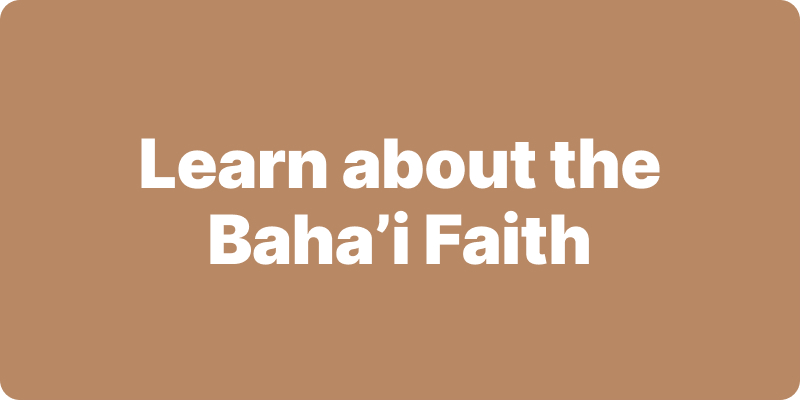Over the past week, Christians have been commemorating Easter (which fell on 8 April this year) and Jews have been commemorating Passover (which goes from 6 to 14 April this year). Just as Easter is of great theological significance to Christians, Passover is of deep spiritual and historical significance to Jews. Passover commemorates the story of the Exodus, in which the ancient Israelites were freed from slavery. For Christians, Easter is about the resurrection of Jesus three days after his crucifixion.
The repeated overlap of Easter and Passover, however, has historically been a source of tension among some Christians and Jews. Interfaith Family calls this the “Passover Predicament”:
For Jews, Easter crystallizes the religious differences between them and Christians. The week leading up to Easter is filled with important historical events from Jesus’ life. From the commemoration of the Last Supper on Thursday, through observance of the crucifixion on Good Friday, to celebration of the resurrection on Easter Sunday, Christians reflect on the foundation of their beliefs — beliefs that separate them from Jews. Moreover, the legacy of anti-Semitism, rooted in beliefs of some Christians that Jews were responsible for Jesus’ death, can make Easter a particularly difficult holiday for Jews.
While people very often do prefer to focus on the beliefs that distinguish them from followers of other religions, the truth is that these religions have an incredible amount in common – more than most people realise!
Additionally, a careful study of the various traditions and commemorations which seemingly serve to highlight differences in beliefs – such as in the case of Passover and Easter – can actually, in my opinion, be a starting point to reflect on the shared heritage that all religions share.
The book I happen to be currently reading – and a great one to be reading during the season of Easter and Passover, if you ask me – is Frances Worthington’s Abraham: One God, Three Wives, Five Religions. In this book, Worthington traces the world’s religions back to Abraham and fully explores the links that Judaism, Christianity, Islam, the Babi Faith and the Baha’i Faith have to each other.
It’s been a fascinating read, so far, and provides a historical backdrop that I believe is crucially important in really understanding the Baha’i concept of progressive revelation. The book looks at the origins of each of the world’s religions and demonstrates how the followers of each are all equal heirs to the faith of Abraham. The differences that divide the followers of each religion, it seems to me, arose at each point in history at which a new Messenger revealed a new religion to meet the spiritual needs of the people of the time.
Between the Jews and Christians, this split arose with the Revelation of Jesus. While some Jews in the time of Jesus recognised Him as the promised Messiah, many other Jews had a different understanding and interpretation of the Messianic prophecies , and accordingly, could not accept the Christian belief that Jesus could be the Messiah. This became the source of great hostility and tension between the Christians and the Jews. Jews have suffered a long history of persecution and oppression for their religious beliefs – a significant amount of their mistreatment, at least in the early history of Christianity, being a response by Christians to the unwillingness of the Jews to recognise Jesus as the promised Messiah.
But Christians, too, would later refuse to recognise Muhammad as a Messenger of God, disagreeing with Muslims as to the interpretation of biblical passages that refer to the One who was to follow Christ. Like the Jews in the times of Christ, Christians had a different interpretation from Muslims of what Jesus had taught. Many Christians today commonly believe that Islam denies the teachings of Jesus, even though Muhammad Himself affirms the divinity of Jesus – referring to him as Ruhullah, or Spirit of God – and repeatedly urges the Christians to be faithful and obedient to the teachings of Jesus.
Referring to the teachings of Muhammad about the existence of various world religions, Worthington states:
He … recognized the legitimacy of other religions by explaining that religious diversity was created by God for the specific purpose of testing whether or not each person is being true to the faith he or she professes: “To each of you God has prescribed a Law and a Way. If God would have willed, He would have made you a single people. But God’s purpose is to test you in which he has given each of you, so strive in the pursuit of virtue, and know that you will all return to God [in the Hereafter], and He will resolve all the matters in which you disagree.”
Perhaps most powerfully, the book looks at the story of the sons of Abraham, Isaac and Ishmael – born of different mothers and each, themselves, the father of a different nation – and offers profound insight into the way in which adherents of the different religions can, regardless of their differing interpretations of holy scripture, come together in true love and harmony.
… the story of Abraham contains a shimmering dewdrop of hope because it foreshadows a time when enmity will fade and a movement toward reconciliation will begin.
The prophetic foreshadowing of this religious reconciliation took place after the death of Abraham, when the two oldest sons, who had long been separated – Ishamel in Mecca and Isaac in Canaan – reunited. The two sons can be understood as representing the five Abrahamic faiths: Islam and the Babi Faith through Ishamel; Judaism, Christianity, and the Baha’i Faith through Isaac.
When Isaac and Ishamel met, they ignored their past differences and concentrated, instead, on doing something postive: they buried their father with love and dignity. This act of solidarity transmitted the clear and powerful message that their common descent from Abraham was more improtant than the fact that they had different mothers.
The tension and hostility that sometimes arises whenever a follower of one religion takes a close look at the differences in interpretation of the scriptures by a follower of another religion – as seen in the Easter and Passover example – is often the result of the followers of one religion not recognising the teachings of a Messenger and the offence this causes to the followers of that Messenger.
Rather than allowing for this to be a source of hostility, it is important to remember that the recognition of any of the Messengers of God is essentially a spiritual decision for the individual believer to make, and not a reason for discord, animosity or judgment. All followers of God will, as Muhammad taught, return to God.
Similarly, during this season of Easter and Passover, perhaps we can all follow the example of Isaac and Ishmael, and rather than allowing ourselves to be overcome with suspicion, resentment or discord, simply look at the common divine origin of our respective religions, and stand shoulder to shoulder as faithful servants of God.
A very blessed Easter and Passover to our Christian and Jewish readers!
Posted by
In her professional life, Preethi has dabbled in various combinations of education, community development and law. At heart, though, she's an overgrown child who thinks the world is one giant playground. She's currently on a quest to make learning come alive for young people and to bring the world's stories and cultures to them, with educational resources from
One Story Learning.








































[…] Additionally, I find that reading books about religious history from a variety of perspectives to really add to my understanding of progressive revelation. Frances Worthington’s Abraham: One God, Three Wives, Five Religions is one example of a book that I found to be really enhance my understanding of progressive revelation. (Read more at “Easter and Passover: The Religions of Abraham“) […]
The Baha’i Faith and Christianity: 5 Steps to Dialogue and Understanding | Baha'i Blog (July 7, 2012 at 11:29 PM)
Go to this link at; http://www.ronpriceepoch.com/Christianity.html …for some perspectives on Christianity from a Baha’i who has been involved with this latest of the Abrahamic religions since 1953.
RonPrice (July 7, 2012 at 4:23 AM)
Love this blog post. Explained some historical truths clearly and succinctly.
Diana Threlfo (April 4, 2015 at 1:41 AM)